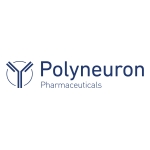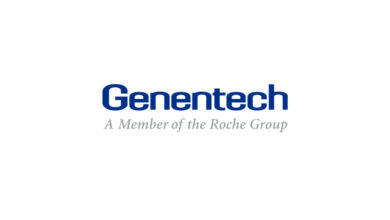Polyneuron and University of Basel Awarded Grant of CHF 1.2M to Advance Novel Treatments to Support ABO-Incompatible Transplants

BASEL, Switzerland–(BUSINESS WIRE)–Polyneuron Pharmaceuticals AG, a clinical-stage developer of a new class of antigen-specific polymers for the treatment of patients with serious autoimmune diseases, today announced that the company and collaborators at the University of Basel have received a grant from the Swiss Innovation Agency Innosuisse to support a project valued at CHF 1.2 million. The project will advance the development of novel injectable glycopolymers to support better ABO-incompatible (ABOi) transplantation patient outcomes. ABOi transplantation, a procedure to transplant solid organs and stem cells without matching ABO blood groups, has been introduced to decrease recipient waiting time and the strongly associated mortality. However, ABOi transplants require powerful immunosuppression to prevent transplant rejection caused by the recipient’s antibodies (isoagglutinins), which can lead to serious infections. The procedures also need cumbersome and time-consuming plasmapheresis or immune apheresis, performed in advance in hospital, to help remove the harmful antibodies and reduce the burden of immunosuppressant drugs.
The grant will be used to leverage Polyneuron’s Antibody-Catch™ platform to engineer novel injectable glycopolymers that mimic blood group antigens to selectively remove the specific, relevant antibodies. Polyneuron and the University of Basel collaborators aim to optimize two antigen-specific glycopolymers for in vitro neutralization and selective elimination of antibodies in a preclinical proof of concept model.
“Our Antibody-Catch™ technology is designed to identify potential glycopolymer treatments that could help reduce the significant impact of strong immunosuppression and therefore reduce higher post-transplant mortality seen with ABOi procedures,” said Dr. Debra Barker, CMO of Polyneuron. “Using the Innosuisse grant, we will advance candidate glycopolymers to preclinical proof of concept and, if successful, prepare them for further development.”
Immunosuppressive treatment, pre- and post-transplantation, as well as multiple rounds of plasmapheresis is a huge burden to patients. Removal of the isoagglutinins by using glycopolymers, could improve patient outcomes and have a positive impact on patients’ quality of life,” said collaborator Dr. Rachel Hevey, PI at the Molecular Pharmacy, Dept. Pharmaceutical Sciences at the University of Basel. “We believe this novel approach, if successful, could also further improve the accessibility and feasibility of ABOi transplantations in the future.”
Antibody-mediated diseases are truly devastating and most of the current treatments unselectively suppress the immune system, frequently leading to serious side effects that significantly affect quality of life. Patients undergoing ABO-incompatible transplantations suffer from life-threatening diseases, such as blood cell cancers or end-stage organ failure affecting the lungs, kidneys, liver, or heart. This implies that these patients are under strong treatment schedules for their primary diseases, including severe adverse effects and co-morbidities. Moreover, prior to receiving the life-saving transplant, patients will undergo additional plasmapheresis cycles in combination with heavy immunosuppression to deplete all harmful antibodies and enable engraftment of the donor organ or stem cells. Currently, most patients undergo five plasmapheresis cycles prior to and several more after receiving the transplant. This process imposes a very high burden, as patients are hospitalized one week prior to major surgery. In addition, each plasmapheresis typically requires daily sessions of 4-5 hours, which is especially challenging for pediatric patients.
About Polyneuron Pharmaceuticals
Polyneuron Pharmaceuticals is pioneering a novel therapeutic approach for the effective and safe treatment of antibody-mediated immune diseases. The company’s Antibody-Catch™ technology platform enables the chemical design of injectable polymers that are able to selectively eliminate pathological antibodies in an antigen-specific manner, while leaving the rest of the immune system intact. Polyneuron was founded as a University of Basel, Department of Pharmaceutical Sciences spin-off in 2014 and is led by Dr. Ruben Herrendorff (CEO, co-founder), Dr. Pascal Hänggi (CSO, co-founder), Dr. Debra Barker (CMO) and Aled Williams (CBO). The company is headquartered at the Stücki Park in Basel, Switzerland. More information can be found at http://www.polyneuron.com/.
Disclaimer
This press release contains forward-looking statements which are based on current assumptions and forecasts of the Polyneuron management. Known and unknown risks, uncertainties, and other factors could lead to material differences between the forward-looking statements made here and the actual development, in particular Polyneuron’s clinical trial timelines, financial situation, and performance. Readers are cautioned not to put undue reliance on forward-looking statements, which speak only of the date of this communication. Polyneuron disclaims any intention or obligation to update and revise any forward-looking statements, whether as a result of new information, future events or otherwise.
Contacts
Polyneuron Pharmaceuticals
Dr. Ruben Herrendorff
+41 61 638 23 23
[email protected]
Halsin Partners (media)
Mike Sinclair
+44 20 7318 2955
[email protected]





